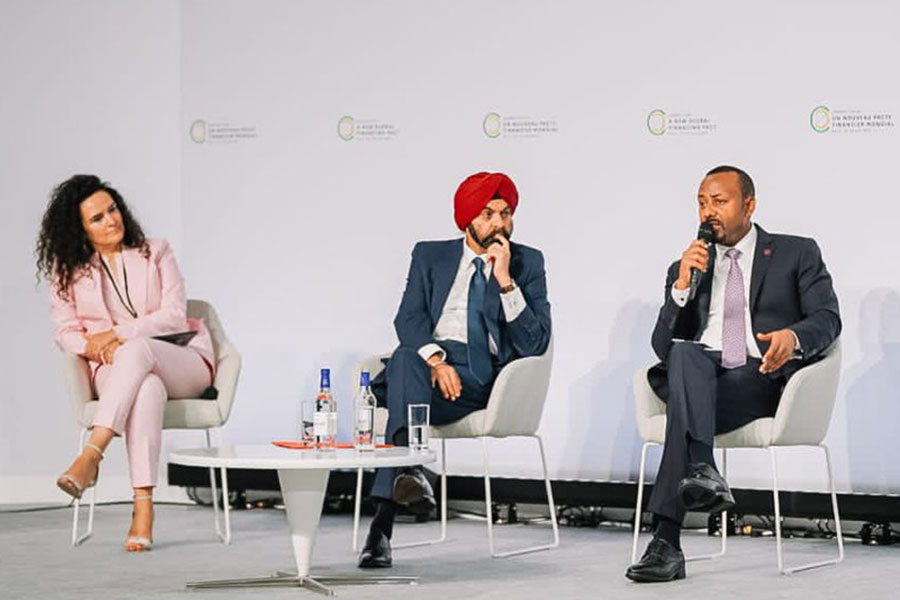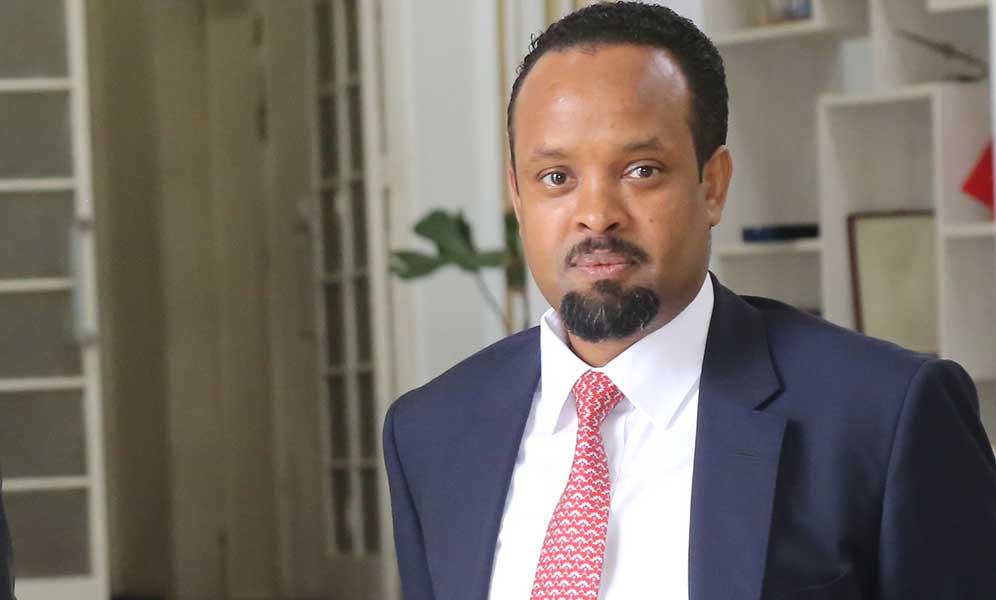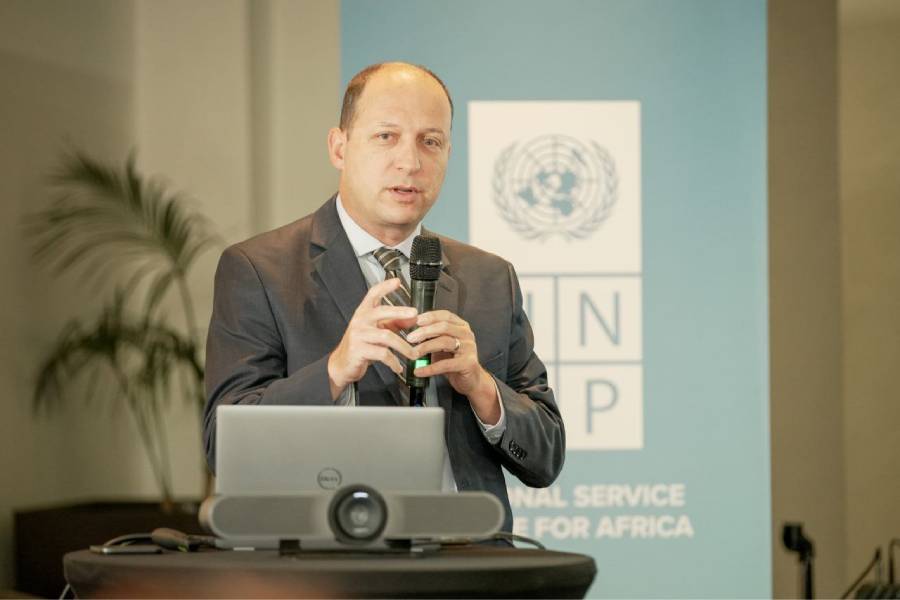
Fortune News | Jun 24,2023
Sep 23 , 2023
By Anne O. Krueger
After reaching agreements with the IMF on essential policy reforms, the international community must help highly indebted countries, establishing procedures to ensure timely and fair burden-sharing among creditors to prevent significant and avoidable suffering, argued Anne O. Krueger, a former World Bank chief economist and former first deputy managing director of the IMF, in this commentary provided by Project Syndicate (PS).
The exponential growth of international capital flows, predominantly in the form of debt, has been one of the great development successes of the past 50 years. But while foreign lending has played a pivotal role in developing economies, loans are a two-edged sword. When used judiciously, they can generate high returns, boost GDP growth, and improve the well-being of borrower countries.
But if debts accumulate and the debt-servicing burden increases without a commensurate increase in repayment capacity, the consequences can be severe and even disastrous.
During the COVID-19 pandemic, for example, many countries grappled with a dramatic increase in fiscal demands, driven by rising public health expenditures and a drop in revenues due to reduced economic activities. Highly indebted countries edged closer to the brink of default, and even those with previously sustainable public finances experienced a dangerous surge in their debt burdens.
When debt levels are high and rising, crises can emerge suddenly and worsen quickly.
While several governments have taken steps to reduce their elevated debt levels and introduced reforms to avert potential crises, some countries' debt-servicing costs are so high that meaningful adjustments are politically or economically unfeasible. Under such conditions, sceptical private creditors sell these countries' sovereign bonds at reduced prices and refuse to extend further credit. Once this happens and governments default on their obligations, they shut themselves out of capital markets.
The subsequent economic crisis typically persists until these countries can restructure their existing debts, implement policy reforms, and restore confidence in their creditworthiness.
When a private company fails to meet its obligations, bankruptcy procedures determine the extent of liability write-downs and the allocation of the firm's remaining assets. By contrast, no universally recognized legal mechanism for restructuring sovereign debt exists. Any solution hinges on a voluntary agreement between debtor governments and their creditors.
Over the past few years, as dozens of low- and middle-income economies found themselves heading toward default, there have been growing calls for debt forgiveness. Kenyan President William Ruto, for example, recently proposed granting African countries a 10-year "grace period" on interest payments. Speaking at the inaugural Africa Climate Summit in Nairobi, Ruto suggested that developing countries redirect funds earmarked for debt service toward investments in renewable energy.
But this and other proposals for blanket debt forgiveness or payment moratoria are deeply flawed.
Notably, some countries' debts are inherently unsustainable. Even if their debts were suddenly forgiven, these governments would lack the resources necessary to finance major environmental initiatives. Moreover, without an agreed-upon restructuring plan and access to additional resources, essential imports required for production and consumption would be severely restricted, resulting in underutilized capacity and potential economic stagnation.
Historically, debt-restructuring negotiations have been a protracted, ad hoc process. The International Monetary Fund (IMF) would collaborate with debtor countries to assess the necessary domestic policy changes and debt adjustments. Meanwhile, sovereign creditors, cooperating through the Paris Club, would consult with private lenders and decide on an appropriate restructuring strategy.
But today's debt landscape presents even more significant challenges. All creditors must be subject to the same haircut to reach a restructuring agreement. Otherwise, some lenders would receive full repayment while others would endure significant write-downs, and they would surely not agree to that. But China, which has emerged as a major creditor over the past two decades, has refused to join the Paris Club. Instead of taking the same haircut as other creditors, the Chinese government insists on being repaid in full, resulting in preferential treatment for China and exacerbating developing countries' debt-servicing difficulties. Failure to agree has delayed the restructuring process.
Consequently, countries like Sri Lanka and Zambia have endured unnecessary delays in resolving their debt crises, even after reaching agreements with the IMF on essential policy reforms. The international community must establish procedures to ensure timely and fair burden-sharing among creditors to prevent significant and avoidable suffering.
The developing world's ongoing economic turmoil underscores the urgent need to establish a new debt-restructuring framework. The World Bank recently estimated that 60pc or more low-income countries are heavily indebted and "at high risk of debt distress." Many middle-income countries, such as Egypt, Jordan, Lebanon, Pakistan, and Tunisia, also face significant fiscal and debt challenges.
If multiple countries fail to meet their debt-servicing obligations, international creditors will become reluctant to finance other heavily indebted countries, potentially triggering a global debt crisis. Such a scenario would have devastating consequences for low- and middle-income economies and the world economy. We can avoid worsening a bad situation by streamlining and expediting the restructuring process.
PUBLISHED ON
Sep 23,2023 [ VOL
24 , NO
1221]


Fortune News | Jun 24,2023

Commentaries | Jan 07,2024

Radar | Feb 22,2020

Radar | Jun 01,2024

Commentaries | Jan 07,2023

Fortune News | Sep 08,2024

Commentaries | May 24,2025

Viewpoints | Jun 28,2025

Editorial | Apr 09,2023

Commentaries | Aug 23,2025

Photo Gallery | 178610 Views | May 06,2019

Photo Gallery | 168803 Views | Apr 26,2019

Photo Gallery | 159631 Views | Oct 06,2021

My Opinion | 137087 Views | Aug 14,2021
Commentaries | Oct 25,2025

Dec 22 , 2024 . By TIZITA SHEWAFERAW
Charged with transforming colossal state-owned enterprises into modern and competitiv...

Aug 18 , 2024 . By AKSAH ITALO
Although predictable Yonas Zerihun's job in the ride-hailing service is not immune to...

Jul 28 , 2024 . By TIZITA SHEWAFERAW
Unhabitual, perhaps too many, Samuel Gebreyohannes, 38, used to occasionally enjoy a couple of beers at breakfast. However, he recently swit...

Jul 13 , 2024 . By AKSAH ITALO
Investors who rely on tractors, trucks, and field vehicles for commuting, transporting commodities, and f...

Oct 25 , 2025
The regulatory machinery is on overdrive. In only two years, no fewer than 35 new pro...

Oct 18 , 2025
The political establishment, notably the ruling party and its top brass, has become p...

Oct 11 , 2025
Ladislas Farago, a roving Associated Press (AP) correspondent, arrived in Ethiopia in...

Oct 4 , 2025
Eyob Tekalegn (PhD) had been in the Governor's chair for only weeks when, on Septembe...

Oct 25 , 2025 . By YITBAREK GETACHEW
Officials of the Addis Abeba's Education Bureau have embarked on an ambitious experim...

Oct 26 , 2025 . By YITBAREK GETACHEW
The federal government is making a landmark shift in its investment incentive regime...

Oct 29 , 2025 . By NAHOM AYELE
The National Bank of Ethiopia (NBE) is preparing to issue a directive that will funda...

Oct 26 , 2025 . By SURAFEL MULUGETA
A community of booksellers shadowing the Ethiopian National Theatre has been jolted b...